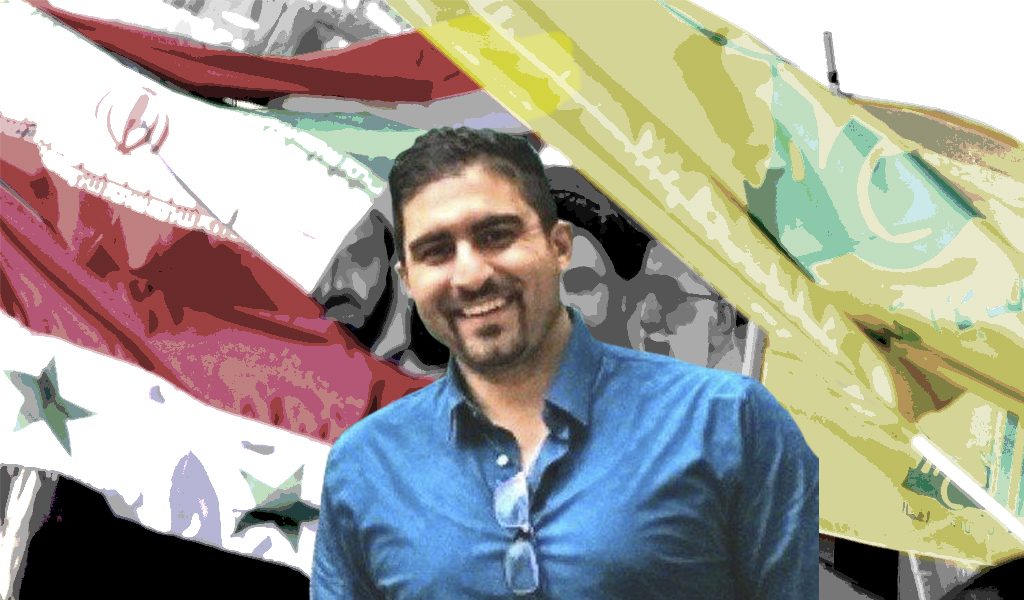
A Hezbollah operative collected “detailed information” about Toronto’s Pearson airport, according to a report circulated by Canada’s air safety agency and obtained by Global News.
The June 18 Canadian Air Transport Security Authority (CATSA) report reproduced an article about Ali Kourani, a member of Hezbollah’s external operations unit, the Islamic Jihad Organization.
A sleeper agent based in the United States, Kourani visited Pearson airport seven times and gathered information about security measures there until his arrest, the CATSA Open Source Information Report said.
Kourani also scouted New York’s JFK airport and U.S government facilities. He passed the results of his surveillance activities to his Hezbollah handler in Lebanon on digital storage devices.
The Iran-backed Lebanese terrorist group had tasked Kourani to collect the information so it could plan attacks, according to U.S. prosecutors. Kourani was arrested in 2017.
“CATSA’s priority is to offer the highest levels of security to the travelling public,” spokesperson Christine Langlois told Global News on Wednesday. “We won’t be commenting further on this article.”
Last month, a U.S. court convicted Kourani of eight counts related to his work as a Hezbollah deep-cover operative. He is scheduled for sentencing on Sept. 27.
“Kourani’s chilling mission was to help procure weapons and gather intelligence about potential targets in the U.S. for Hezbollah terrorist attacks,” the U.S. Department of Justice said in a news release.
But evidence disclosed during his trial showed he also conducted surveillance for Hezbollah in Canada and was married to a Lebanese-Canadian.
Kourani told the FBI about his contacts with a Canadian airport employee, Hezbollah expert Matthew Levitt wrote in the Foreign Policy article that formed the basis of the report reproduced by CATSA.
While they smoked a hookah together, the employee told Kourani about the locations of security cameras and metal detectors, Levitt wrote, adding, “Kourani said he could ask the man to carry a bag onto an airplane for him, and he would do it.”
Kourani told the FBI that Hezbollah’s external operations group, known as Unit 910, was “even more active in Canada than they were in the United States.”
He gave the FBI 15 names from his contact list, including a Windsor, Ont. man he said was close to Hezbollah-affiliated clerics, a resident of Fort McMurray, Alta. and man who went to school in Toronto and was “closely related” to Hezbollah factions.
An outlawed terrorist group that serves as a proxy force for Iran, Hezbollah has long operated in Canada, which it has used mostly as a support base to fundraise through crime and charities, shop for materials and spread its influence.
But Kourani’s case revealed that Hezbollah had also collected information about Canada and its largest airport.
“Hezbollah has crossed a threshold and is, at a minimum, developing North American networks capable of executing attacks should the group’s leadership deem them necessary,” said the article reproduced in the CATSA report.
Kourani underwent paramilitary training in Lebanon at age 16 and moved to the U.S. in 2003. He was recruited into the external operations unit in 2008 and told to lay low until obtaining U.S. citizenship.
Shortly after receiving a U.S. passport, he travelled to Guangzhou, China in 2009 for what U.S. authorities believe was a Hezbollah-directed trip to seek potential sources of precursor chemical needed to manufacture explosives.
“Kourani stated that, in his opinion, the ESO [Hezbollah’s External Security Organization] would smuggle explosives to the U.S. from Canada,” read an FBI report filed in U.S. District Court.
Kourani made yearly trips to Lebanon to obtain instructions from his handler, who wanted him to scout airports and identify Jewish businessmen and former members of the Israeli military living in the U.S.
At the time, Hezbollah’s Islamic Jihad Organization was desperate to retaliate for the 2008 assassination of its founder, Imad Mugniyah, he told the FBI.
During a 2014 visit to Canada, Kourani was approached by the Canadian Security Intelligence Service. In 2016, his wife told CSIS Kourani had beaten her and her mother, according to a court document.
His lawyers have asked the court to set aside the verdict.


